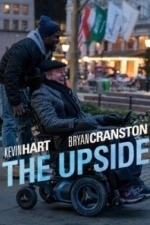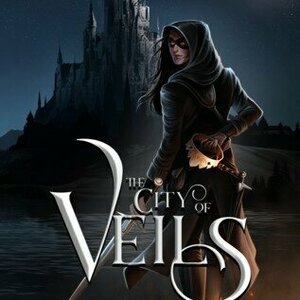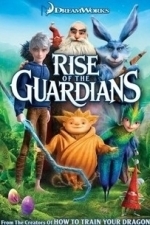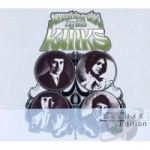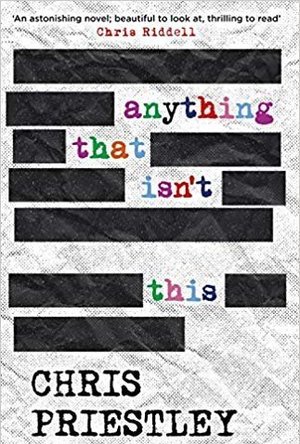Search
Search results
Emma @ The Movies (1786 KP) rated The Upside (2019) in Movies
Jun 22, 2019 (Updated Sep 25, 2019)
After a bit of a bleak start to January I was looking forward to something with a little humour and The Upside did not disappoint.
Kevin Hart is always one of those actors that strikes me as an acquired taste. I enjoy lots of his roles but they do have a tendency to grate a little. Dell made a wonderful change though, it really suited him. This is probably the most serious role I've seen him in and I'm hoping that this is going to lead to more things along this line.
The other actors make good work of their parts. Kidman's role is rather small and a little predictable but entertaining nevertheless. I'd be hard pushed to tell you what I've ever seen Cranston in apart from Malcolm In The Middle, I can't say I was as impressed with him as I was Hart but he made for a good partner in crime.
There's one thing that confused me though was the very opening of the film. The first scene shows you events from further down the timeline but there doesn't seem to be any reason for it. I've been contemplating possibilities, potentially to show that the main character of the film isn't just Dell, but that becomes evident on it's own. I'm really shrugging my shoulders about its inclusion, it's quickly forgotten and doesn't really have any impact there and probably detracted from its inclusion later on.
The Upside is a remake of the French film Untouchable (original title Intouchables) which in turn was inspired by the real life story of Philippe Pozzo di Borgo and Abdel Sellou. It's a charming story, delightfully amusing, and quite incredible to discover is inspired by true events. It certainly gives you something to stop and think about, and the fact that there are stories out there like this does give you back a little faith in humanity.
What you should do
It's well worth a watch, I think I'm even going to say that the money on a cinema ticket would not feel like a waste.
Movie thing you wish you could take home
A collection of sports cars would be quite nice, and the money to keep myself insured on them!
Kevin Hart is always one of those actors that strikes me as an acquired taste. I enjoy lots of his roles but they do have a tendency to grate a little. Dell made a wonderful change though, it really suited him. This is probably the most serious role I've seen him in and I'm hoping that this is going to lead to more things along this line.
The other actors make good work of their parts. Kidman's role is rather small and a little predictable but entertaining nevertheless. I'd be hard pushed to tell you what I've ever seen Cranston in apart from Malcolm In The Middle, I can't say I was as impressed with him as I was Hart but he made for a good partner in crime.
There's one thing that confused me though was the very opening of the film. The first scene shows you events from further down the timeline but there doesn't seem to be any reason for it. I've been contemplating possibilities, potentially to show that the main character of the film isn't just Dell, but that becomes evident on it's own. I'm really shrugging my shoulders about its inclusion, it's quickly forgotten and doesn't really have any impact there and probably detracted from its inclusion later on.
The Upside is a remake of the French film Untouchable (original title Intouchables) which in turn was inspired by the real life story of Philippe Pozzo di Borgo and Abdel Sellou. It's a charming story, delightfully amusing, and quite incredible to discover is inspired by true events. It certainly gives you something to stop and think about, and the fact that there are stories out there like this does give you back a little faith in humanity.
What you should do
It's well worth a watch, I think I'm even going to say that the money on a cinema ticket would not feel like a waste.
Movie thing you wish you could take home
A collection of sports cars would be quite nice, and the money to keep myself insured on them!
Sophia (Bookwyrming Thoughts) (530 KP) rated The City of Veils (Princess Vigilante, #1) in Books
Jan 23, 2020
I am complete trash for novels involving princesses that hide under the guise of anonymity so they can protect their kingdom (bonus points for not wanting to rule), and The City of Veils by S. Usher Evans is no exception to this. While Brynna is working on bringing down a prominent businessman known for scamming civilians, she is taken in by the captain of the king’s guard and finds out both her father and brother have been murdered in less than a month. The murders leave behind a mystery and also force her to step in as the rightful queen of Forcadel. However, staying away from the castle for years to escape an arranged marriage comes with a cost: not only is she not aware of the court politics that have been happening in the castle, but she’s not sure who she could trust. Despite having no particular desire to rule, she definitely doesn’t want to be the next dead royal.
Despite being advised against it, Brynna finds herself negotiating with Felix, the captain of the king’s guard, to continue working as a vigilante at night while working on her royal duties during the day. This begins an amusing back and forth between the two throughout the novel as they butt heads constantly and try to negotiate with each other. I loved seeing their relationship develop, along with Brynna’s relationship with the other characters, including Katarine, the other guards, and others who will likely be playing a major role in later books.
The first novel in Evans’ newest series, Princess Vigilante, was a fun ride from beginning to end. The overall pacing of the story was perfect, although there are parts I felt were slow or a little rushed. The story was engaging and entertaining, and I was constantly kept on my toes as Brynna tries to navigate her life as a masked vigilante and a queen while trying to stay wary of potential dangers.
<a href="http://theartsstl.com/s-usher-evans-the-city-of-veils-suns-golden-ray-publishing/">This review is originally posted on The Arts STL</a>
Despite being advised against it, Brynna finds herself negotiating with Felix, the captain of the king’s guard, to continue working as a vigilante at night while working on her royal duties during the day. This begins an amusing back and forth between the two throughout the novel as they butt heads constantly and try to negotiate with each other. I loved seeing their relationship develop, along with Brynna’s relationship with the other characters, including Katarine, the other guards, and others who will likely be playing a major role in later books.
The first novel in Evans’ newest series, Princess Vigilante, was a fun ride from beginning to end. The overall pacing of the story was perfect, although there are parts I felt were slow or a little rushed. The story was engaging and entertaining, and I was constantly kept on my toes as Brynna tries to navigate her life as a masked vigilante and a queen while trying to stay wary of potential dangers.
<a href="http://theartsstl.com/s-usher-evans-the-city-of-veils-suns-golden-ray-publishing/">This review is originally posted on The Arts STL</a>
Gareth von Kallenbach (980 KP) rated Rise of the Guardians (2012) in Movies
Aug 7, 2019
Remember what it was like when you were in elementary school and it snowed? Remember that feeling of anticipation waiting for your mom to say, “No school today kids”, and once she did you just knew you were going to have a blast? If not, you will when you see “Rise of the Guardians”, The newest animated movie from Dreamworks casts Jack Frost (Chris Pine), the Sand Man, Santa Claus (Alec Baldwin), the Tooth Fairy (Isla Fisher), the Easter Bunny (Hugh Jackman), and the Boogie Man (Jude Law). The later four, except the Boogie Man, all fulfill their individual roles and come together as a group to protect children as the Guardians.
Cast out centuries ago; Pitch (Law) concocts a plan to bring fear back into children’s hearts by turning their dreams into nightmares. This fear will make him more powerful and, as the Guardian’s lose children’s belief, they become less powerful and are not as able to fight him off. Around the same time that Pitch was cast out, the Man in the Moon picks Jack to be the newest Guardian. Jack is literally left out in the cold for the next 300 years which he spends having fun, creating mischief, and causing snow days. However, he is also on a search for what he is meant to do in life, and why he is here. Something that people of all ages can understand. Through helping the Guardians he finds his purpose.
You know you are at a good show when you sit in an audience consisting mostly of children and hear nothing but the movie. This was a great movie for kids of all ages; I laughed through the whole thing! I loved Santa Claus and his Yetis. They added comic relief that any adult will enjoy. The voice casting was spot on, and each character is relatable in some way. The story of finding one’s self will capture children’s attention and remind adults that they are always on that journey, but it is supposed to be fun. Both children and adults alike will be captivated by the dreams, wonder, memories, hope, and fun this movie provides.
Cast out centuries ago; Pitch (Law) concocts a plan to bring fear back into children’s hearts by turning their dreams into nightmares. This fear will make him more powerful and, as the Guardian’s lose children’s belief, they become less powerful and are not as able to fight him off. Around the same time that Pitch was cast out, the Man in the Moon picks Jack to be the newest Guardian. Jack is literally left out in the cold for the next 300 years which he spends having fun, creating mischief, and causing snow days. However, he is also on a search for what he is meant to do in life, and why he is here. Something that people of all ages can understand. Through helping the Guardians he finds his purpose.
You know you are at a good show when you sit in an audience consisting mostly of children and hear nothing but the movie. This was a great movie for kids of all ages; I laughed through the whole thing! I loved Santa Claus and his Yetis. They added comic relief that any adult will enjoy. The voice casting was spot on, and each character is relatable in some way. The story of finding one’s self will capture children’s attention and remind adults that they are always on that journey, but it is supposed to be fun. Both children and adults alike will be captivated by the dreams, wonder, memories, hope, and fun this movie provides.
Alex Kapranos recommended Something Else by The Kinks in Music (curated)
Eleanor Luhar (47 KP) rated Anything That Isn't This in Books
Jun 24, 2019
Well this was a surprising read. Not just a typical YA dystopian novel, but a peculiar, artistic novel complete with illustrations throughout.
For some reason, I wasn't expecting the strange world that Priestley created in this book. The Grey is suffocating Frank, the Ministry controlling his every decision. Most people are okay with it, comfortable in the routine provided. But Frank wants more.
First, Frank is obsessed with a girl from his school. Even after they graduate, he is desperate to be with her - he believes they're 'fated'. But after a while, he realises that maybe she's not quite right for him.
This combines two typical YA romance plots - the "unpopular boy gets the cool girl" and also the "childhood friends become lovers" plot. I think it's a bit unusual to mix the two, but I didn't find anything spectacular about this aspect of the novel.
The whole book has a very strange abstract sort of feel to it; I was unsure at times whether to actually take what he was saying at face value or take it as a metaphor. There are loads of weird myths that are thrown around, many of which play a big role later in the book.
The friendship with Scape was interesting; it kind of just happened out of the blue and ended in a similar way. And Mr Vertex was a weird character - it was obvious there was something strange about him, and I felt he really added to the abstract feel created.
The book kind of felt grey, but not in a bad way - as in, I felt how Frank felt about his life. I was pretty shocked by how dark it got at the end, quite suddenly. The ending was a bit of a whirlwind, followed by a moment of calm. The calmness was nice, an interesting ending that left your imagination running wild.
I didn't really enjoy this book at first but I did eventually get into it, and quite liked it. I definitely liked the unique feel it had, almost like Coraline. 3.5 stars.
For some reason, I wasn't expecting the strange world that Priestley created in this book. The Grey is suffocating Frank, the Ministry controlling his every decision. Most people are okay with it, comfortable in the routine provided. But Frank wants more.
First, Frank is obsessed with a girl from his school. Even after they graduate, he is desperate to be with her - he believes they're 'fated'. But after a while, he realises that maybe she's not quite right for him.
This combines two typical YA romance plots - the "unpopular boy gets the cool girl" and also the "childhood friends become lovers" plot. I think it's a bit unusual to mix the two, but I didn't find anything spectacular about this aspect of the novel.
The whole book has a very strange abstract sort of feel to it; I was unsure at times whether to actually take what he was saying at face value or take it as a metaphor. There are loads of weird myths that are thrown around, many of which play a big role later in the book.
The friendship with Scape was interesting; it kind of just happened out of the blue and ended in a similar way. And Mr Vertex was a weird character - it was obvious there was something strange about him, and I felt he really added to the abstract feel created.
The book kind of felt grey, but not in a bad way - as in, I felt how Frank felt about his life. I was pretty shocked by how dark it got at the end, quite suddenly. The ending was a bit of a whirlwind, followed by a moment of calm. The calmness was nice, an interesting ending that left your imagination running wild.
I didn't really enjoy this book at first but I did eventually get into it, and quite liked it. I definitely liked the unique feel it had, almost like Coraline. 3.5 stars.

FinanzManager für Numbers
Productivity and Finance
App
Appropriate communication with German Authorities, Companies, Schools, Universities, Doctors and...

Schweizer Zeitungen - Journaux Suisse - Giornali Svizzeri
News
App
50% Rabatt. Laden Sie es jetzt! Die meistverkaufte News-App in Großbritannien, Kanada, Italien,...

Co-Pilot RT — Rally sport app powered by Hudway
Sports and Navigation
App
Co-Pilot RT is both a co-pilot and a HUD for rally professionals. Based on the best practices of...
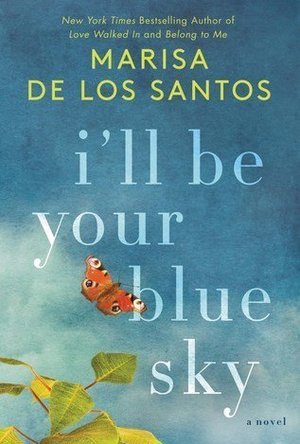
I'll Be Your Blue Sky
Book
The New York Times bestselling author revisits the characters from her beloved novels Love Walked In...
fiction contemporary fiction series
Anna Marie Green (7 KP) rated the Xbox One version of Monster Hunter World in Video Games
Jul 3, 2018 (Updated Jul 3, 2018)
Fantastic Gameplay Possibilities (4 more)
Intelligent Monster AI
Climbing Difficulty
Good Community Management
It's Damn Good Fun (If you have $30, buy it.)
Feels Incomplete (2 more)
Experienced Players Lack Challenge
Mediocre Story
Monster Hunter, One Year Later
Monster Hunter: World was Capcom's fiest big success in the Western market. After years of cult status on the DS, they finally broke through to the world of consoles and had so much success that they dubbed MH:W their benchmark for future games.
But should they?
MH:W is, at its core, is a dungeon crawler designed to feel open-world within its own constraints. With beautiful environments such as the Coral Highlands and the toxic areas festering beneath the Rotten Vale, MHW looks and feels much more massive than the trodden paths you follow. Your first hunts feel thrilling as you take different paths to chase your limping prey, and a cycle of different weather, monsters, and endemic life keep you invested in immersion.
But after hunting a tempered Nergigante for the 20th time, things do begin to fall out of place. You experience the malaise of a Saitama-like hero. Have you become too strong?
Challenging fights become the norm. The occasional arch-tempered monster appears, but scaled damage isn't always the same thing as new difficulty.
In the handheld games, there were dozens of monsters with distinct abilities and variations. MH: Generations had 73 large monsters to hunt. You could even play as a palico.
But that variety just isn't in MH:W.
Granted, the game is an experiment and has provided some good content for no extra cost to the players, which is a feat of its own in comparison to all the other big game developers (EA, Microsoft, Square Enix, Bethesda). They also do an excellent job managing weekly challenges and encouraging community between players. Kulve Taroth hunts were a blast and the free meal in the Hub was an excellent bribe.
MH:W still needs more monsters and at least one new environment. Since its release in January 2018, only three monsters have been added to the game: Deviljho, Kulve Taroth, and Lunastra. Behemoth from Final Fantasy is also making an appearance this July. That's a monster every two months. Don't get me wrong here— that's a fair schedule for content release. Overwatch clocks in at about three months for every hero, so two months is a respectable jog for the quality of the quality of the game. Still, even Overwatch -with it's full player-controlled roster- can become a bit of a slog without those regular updates.
The easiest fix? Capcom needs to finally add in G-Ranks with weapon rarities 9 and 10, and the terrifying monsters to match. The other MH games have generally had these ranks, and the MH:W G updates have been teasing us in rumors since the release, yet we haven't seen any evidence of their existence. A massive content update containing new unique weapons trees, rarity 8 varieties of dead-end trees, armor transmogs, new endemic life and monsters, better armor designs, and more material choices... Capcom has incredible potential on their table that could rekindle gamers' interest in helping the Fifth solve the new mysteries of the New World.
Or, god forbid, suffer the gamers by making them by Monster Hunter: World 2 just to feel like they actually completed the first game.
But should they?
MH:W is, at its core, is a dungeon crawler designed to feel open-world within its own constraints. With beautiful environments such as the Coral Highlands and the toxic areas festering beneath the Rotten Vale, MHW looks and feels much more massive than the trodden paths you follow. Your first hunts feel thrilling as you take different paths to chase your limping prey, and a cycle of different weather, monsters, and endemic life keep you invested in immersion.
But after hunting a tempered Nergigante for the 20th time, things do begin to fall out of place. You experience the malaise of a Saitama-like hero. Have you become too strong?
Challenging fights become the norm. The occasional arch-tempered monster appears, but scaled damage isn't always the same thing as new difficulty.
In the handheld games, there were dozens of monsters with distinct abilities and variations. MH: Generations had 73 large monsters to hunt. You could even play as a palico.
But that variety just isn't in MH:W.
Granted, the game is an experiment and has provided some good content for no extra cost to the players, which is a feat of its own in comparison to all the other big game developers (EA, Microsoft, Square Enix, Bethesda). They also do an excellent job managing weekly challenges and encouraging community between players. Kulve Taroth hunts were a blast and the free meal in the Hub was an excellent bribe.
MH:W still needs more monsters and at least one new environment. Since its release in January 2018, only three monsters have been added to the game: Deviljho, Kulve Taroth, and Lunastra. Behemoth from Final Fantasy is also making an appearance this July. That's a monster every two months. Don't get me wrong here— that's a fair schedule for content release. Overwatch clocks in at about three months for every hero, so two months is a respectable jog for the quality of the quality of the game. Still, even Overwatch -with it's full player-controlled roster- can become a bit of a slog without those regular updates.
The easiest fix? Capcom needs to finally add in G-Ranks with weapon rarities 9 and 10, and the terrifying monsters to match. The other MH games have generally had these ranks, and the MH:W G updates have been teasing us in rumors since the release, yet we haven't seen any evidence of their existence. A massive content update containing new unique weapons trees, rarity 8 varieties of dead-end trees, armor transmogs, new endemic life and monsters, better armor designs, and more material choices... Capcom has incredible potential on their table that could rekindle gamers' interest in helping the Fifth solve the new mysteries of the New World.
Or, god forbid, suffer the gamers by making them by Monster Hunter: World 2 just to feel like they actually completed the first game.
